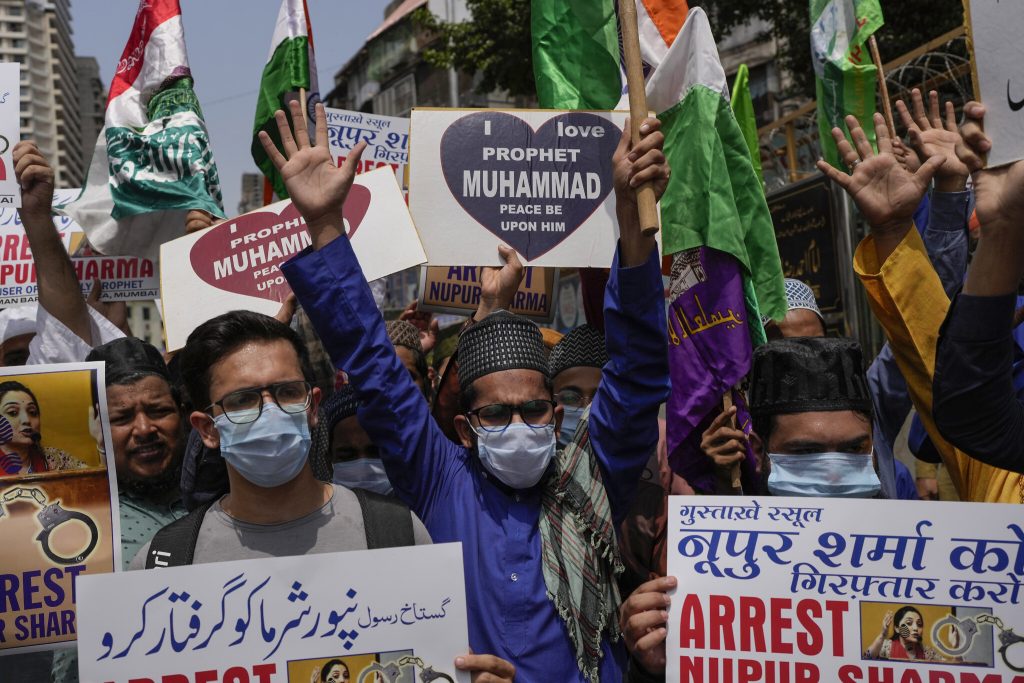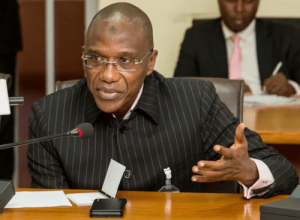What to know about India’s Prophet Mohammed controversy

The United Arab Emirates, Malaysia, Oman, and Iraq are among at least 15 Muslim-majority nations to have condemned the remarks, which were described as “Islamophobic,” with several countries summoning India’s ambassadors. The incident sparked protests in neighboring Pakistan and prompted calls from around the region to boycott Indian goods.India’s Hindu nationalist ruling Bharatiya Janata Party (BJP) disciplined the two officials involved, but the firestorm involving India’s major Arab trade partners is yet to die down. Here’s what you need to know.What is causing the backlash?At the center of the controversy is Nupur Sharma, now suspended national spokesperson for the BJP — the party of Indian Prime Minister Narendra Modi. On May 26, Sharma made comments during a televised debate on an Indian news channel about the Prophet Mohammed that were widely deemed offensive and Islamophobic. Most Indian news outlets have not directly quoted Sharma’s original comments.Sharma later withdrew her remarks and said it was never her intention to “hurt anyone’s religious feelings.” On Twitter, Sharma The hashtag “Anyone but the Prophet, oh Modi” has been trending on Twitter in all six Gulf countries, and as far away as Algeria. Oman’s outspoken Grand Mufti Sheikh Ahmad Al-Khalili, the chief religious figure in the country, called Sharma’s comments “a war on all Muslims” and a matter that “calls for all Muslims to rise as one nation.”Modi has not publicly commented on the incident but Indian embassies in Gulf nations In 2018, India’s current Home Minister Amit Shah said Muslim immigrants and asylum seekers from Bangladesh were “termites” and promised to rid the nation of them. And between 2015 and 2018, vigilante groups killed dozens of people — many of whom were Muslims — for allegedly consuming or killing cows, an animal considered sacred by Hindus, according to Human Rights Watch.In 2019, India’s Parliament passed a bill that would give immigrants from three neighboring countries a pathway to citizenship — except for Muslims. It led to extended protests and international condemnation.And in December 2020, Uttar Pradesh enacted a controversial anti-conversion law, making it more difficult for interfaith couples to marry or for people to convert to Islam or Christianity.All of this, analysts say, is evidence that Modi and his BJP party have pushed an agenda of Hindu nationalism onto secular India, a country of 1.3 billion people.What the BJP’s reaction says about India’s relationship to Gulf statesAnalysts said Modi has walked a tightrope between keeping his Muslim international allies happy while pushing his party’s Hindu nationalist agenda at home.”Modi has tried very hard to prevent his party’s domestic political agenda from spilling over and poisoning India’s relations with the Gulf states,” said Hasan Alhasan, a Bahrain-based fellow at the International Institute for Strategic Studies who researches Indian foreign policy in the Gulf. “The extent to which Sharma’s comments have clouded India’s relations with the Gulf states is unprecedented, and that’s of course because she is, or was, the spokesperson of the BJP.”India has much to lose if it can’t keep a lid on the controversy. It comes as Gulf states and India look to enhance their economic partnership. India, the world’s third-biggest importer of oil, looks to the Middle East for 65% of its crude. The South Asian nation also sends to the Gulf states millions of workers who send home billions of dollars in remittances each year. And the UAE has singled out India among seven other nations as its future economic partner.The Gulf states are key sources of India’s oil and gas imports, with bilateral trade worth more than $100 billion, according to Alhasan.CNN’s Abbas Al Lawati, Manveena Suri, Kunal Sehgal, Rhea Mogul, Nadeen Ebrahim, Swati Gupta and Akanksha Sharma contributed reporting.







